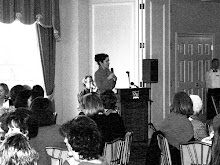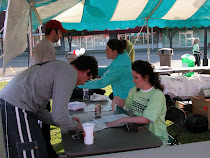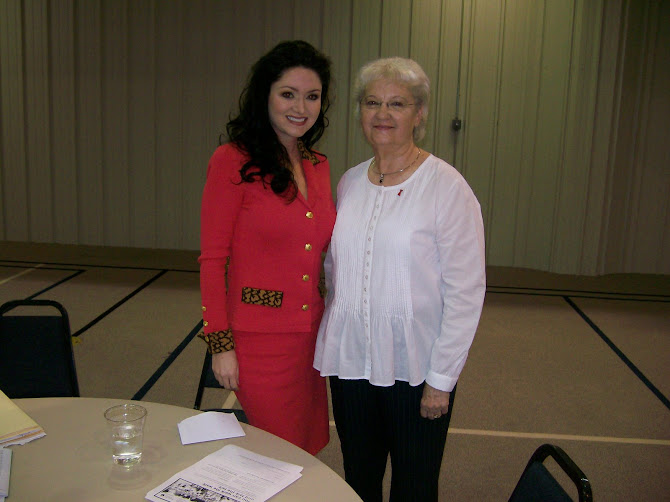Congress is closer than ever to passing a health system reform bill, and we can't lose this opportunity for real health reform. However, members of the AMA's Patients' Action Network and doctors from around the country--in states like Florida, Nebraska, Colorado, Texas and Missouri--are all concerned about how this legislation will affect your access to your doctor.
In the U.S. Senate, the health reform bill that's been proposed would use Medicare as a foundation--and that foundation is crumbling because of an archaic payment system already in place. This system is scheduled to cut Medicare physician payments by more than 20 percent Jan. 1, 2010, with repeated annual cuts coming after that.
These annual cuts are a huge problem for patients--and for many families--because they will prevent doctors from taking on new Medicare patients, discourage many from investing in new health technology and make some think about closing their medical practices altogether.
Right now, the Senate is promoting another one-year Band-Aid for this problem, which means that we’ll be dealing with an even bigger problem next year.
Watch doctors from around the country discuss the reality of what this means for you and your family, then call Sen. Blanche Lambert Lincoln (D) and Sen. Mark Lunsford Pryor (D) at (888) 434-6200 or e-mail them here.
Monday, September 28, 2009
From the AMA
Posted by Laine Berry at 9:39 AM 0 comments
Thursday, September 24, 2009
From Senator Blanche Lincoln
This Week in Washington: Senate Finance Committee Begins Debate on Health Care Reform Legislation
Rising health care costs are unsustainable and a growing burden on our families, businesses, and economy. That’s why health care reform is critical for our nation’s future economic security.
This week, the Senate Finance Committee has taken a significant step by beginning the democratic process of considering the initial health care reform bill. Several of my amendments have been included in the legislation, which continues to be a work in progress.
I continue to work with my colleagues on the Senate Finance Committee to craft a fiscally responsible product that reins in rising health care costs, provides stability to those who like their current health care coverage, and provides better options for those in need of affordable coverage. Throughout this process, it has been my goal to ensure health insurance reform works for small businesses and the self-employed so that they have quality health care options, just like federal employees.
Watch portions of my opening statement before the Senate Finance Committee by clicking on the YouTube icon below.
With Arkansas Pride,
Blanche Lincoln
Posted by Laine Berry at 7:05 PM 0 comments
Monday, September 21, 2009
Emceeing Humane Society Fashion Show


I had such a wonderful time emceeing the Humane Society Benefit Fall Fashion Show! There were so many wonderful pieces shown, and over a thousand dollars raised for the Humane Society. And no, I do NOT use notes when I speak. I am reading the list of sponsors for the evening. The community came out en masse for this event, and the list of sponsors was literally a page long! Congrats to Adam, Abby and Rick for an amazing and successful event. Thank you for allowing me to be part of it.
Posted by Laine Berry at 7:14 PM 0 comments
Heart attack rates drop after smoking bans, continue downward over time
DALLAS, Sept. 21, 2009 — One year after passing smoking bans, communities in North America and Europe had 17 percent fewer heart attacks compared to communities without smoking restrictions, and the number of heart attacks kept decreasing with time, according to a report in Circulation: Journal of the American Heart Association.
The report is a meta-analysis of 13 studies in which researchers examined changes in heart attack rates after smoking bans were enacted in communities in the United States, Canada and Europe. The researchers found that heart attack rates started to drop immediately following implementation of the law, reaching 17 percent after one year, then continuing to decline over time, with about a 36 percent drop three years after enacting the restrictions.
“While we obviously won’t bring heart attack rates to zero, these findings give us evidence that in the short- to medium-term, smoking bans will prevent a lot of heart attacks,” said James M. Lightwood, Ph.D., co-author of the study and assistant adjunct professor in the department of clinical pharmacy at the University of California–San Francisco. “The studies on this issue now have long enough follow-up periods so that we can see exactly how big the effect is.”
Lightwood also noted that the community effect is consistent with probable individual risk and exposure scenarios.
For example, according to the American Heart Association’s Heart Disease and Stroke Statistics 2009 Update, non-smokers exposed to secondhand smoke at home or at work have a 25 percent to 30 percent increased risk of developing heart disease. This new research suggests that the individual increased risk may be higher, said Lightwood.
“This study adds to the already strong evidence that secondhand smoke causes heart attacks, and that passing 100 percent smoke-free laws in all workplaces and public places is something we can do to protect the public,” Lightwood said. “Now we have a better understanding of how you can predict what will happen if you impose a smoking-free law.”
David Goff, M.D., Ph.D., Chair of the Department of Epidemiology and Prevention and Professor of Public Health Sciences and Internal Medicine at Wake Forest University School of Medicine in Winston-Salem, NC, and an American Heart Association national spokesperson said the paper provides strong support for the contention that smoke free laws will improve public health. “This is good evidence that the benefits are realistic and consistent with reasonable estimates of the harm imposed by secondhand smoke,” Goff said.
“It is important to move forward now with widespread implementation of smoke-free laws,” he added. “At a time of great concern over the financial sustainability of our healthcare system, smoke free laws represent an inexpensive approach to reducing heart attacks, and, probably, other cardiovascular conditions.”
Stanton Glantz, Ph.D., co-authored the study. Author disclosures are on the manuscript.
The National Cancer Institute funded the study.
Posted by Laine Berry at 6:58 PM 0 comments
Friday, September 18, 2009
Lung Cancer Advocates in the News
Each year, the Partnership hosts an Advocacy Summit - a two-day conference where lung cancer advocates gather to learn about how to raise awareness in their communities, how to engage the media and other grassroots advocacy strategies.
Congratulations to Kathryn Joosten and Montessa Lee, two Advocacy Summit alumni, for using the skills they learned at the Summit to get national press coverage for their stories.
Kathryn Joosten, two-time Emmy winner for her role as Mrs. McCluskey on ABC's Desperate Housewives, recently found out she once again has lung cancer. After eight years cancer-free, she was surprised by this new diagnosis.
Instead of just taking the news, though, Ms. Joosten took it on. To try to combat the stigma associated with the disease, she has told her story to People Magazine and E! Online, where she was profiled on Ted Casablanca's blog, The Awful Truth.
Kathryn Joosten
Montessa Lee was only 28 when she was diagnosed with lung cancer. It took several visits to her doctors to get them to realize what she had. They never considered a young woman who had never smoked could possibly have this disease. She tells her story for all to know in the October issue of SELF, as well as on the SELF Magazine website.
Our deepest thanks to Ms. Joosten and Ms. Lee for sharing their stories so broadly to raise awareness of this disease!
Montessa Lee
Posted by Laine Berry at 11:43 AM 0 comments
Thursday, September 17, 2009
One email Can Help Women with Heart Disease
One E-mail Can Help Women with Heart Disease
Did you know that today, a woman can be charged health insurance premiums 150% higher than a man of the same age?
Unfortunately, it’s true. Studies have found that women pay significantly higher premiums than men of the same age for individual health insurance policies providing identical coverage. And these higher health care costs can put coverage out of reach for women with heart disease and even for women who are taking preventative measures to reduce their risk. And in most states, those with a pre-existing medical condition as common as high blood pressure can be denied coverage altogether or charged unaffordable premiums.
That’s why we’re calling on you, as a member of the Go Red for Women movement, to make your voice heard and join us in letting Congress know that the fight against our Nation’s No. 1 killer of women requires urgent action on health care reform.
On September 30th, American Heart Association advocates will be on Capitol Hill to discuss the challenges they face as heart disease survivors in affording health care coverage -- and they need your help to make their message impossible to ignore. Email your Members of Congress today and let them know women with heart disease need their support in reforming the broken health care system
Posted by Laine Berry at 2:47 PM 0 comments
Tuesday, September 15, 2009
So much to do, so little time to blog!
First, I must apologize. I was just certain that upon giving up my title I would have copious amounts of free time. How wrong I was! Things are indeed steamrolling along, and sadly my blog has taken more than a back-seat. It has been located somewhere in the vicinity of the trunk of my "car" of life, wedged somewhere under the floor mat between the spare tire and the first aid kit. You get the idea, I'm sure.
Posted by Laine Berry at 8:29 PM 1 comments








































































